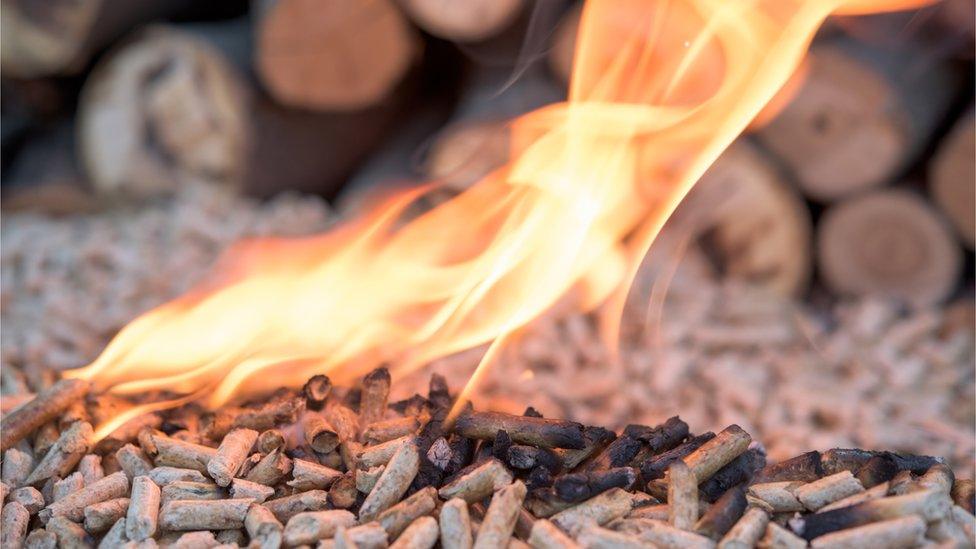RHI subsidy firms named by Department for the Economy
- Published
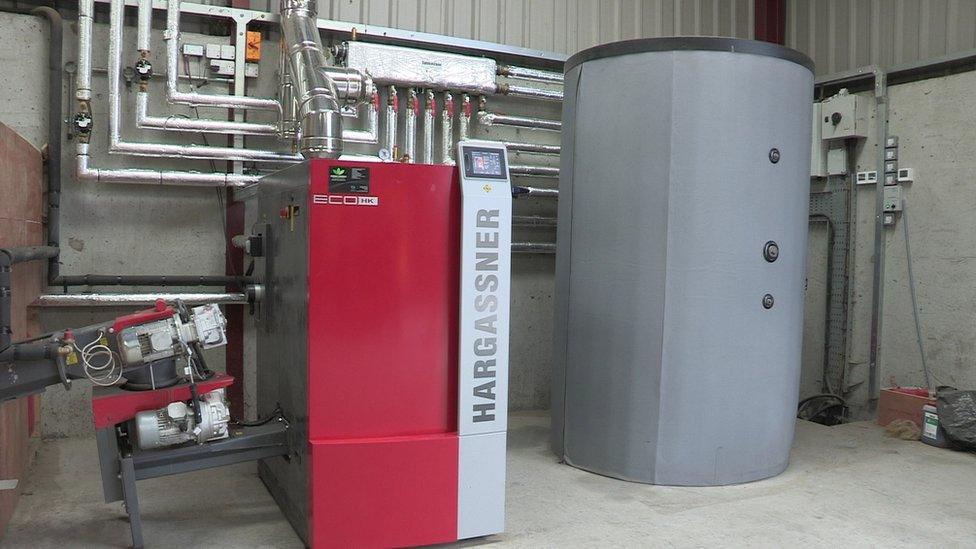
A wood chip boiler accredited to the RHI scheme
A list of companies receiving a subsidy from the controversial Renewable Heat Incentive (RHI) has been released by the Department for the Economy.
It published the details, external on Thursday, but the information only covers about half of those in receipt of payments.
Firms that received more than £5,000 have been named. The information includes company names and amounts they were paid up to the end of last month.
Those who applied as individuals rather than companies, have not been named.
'Huge hullaballo'
Some of the companies named on the list say they have nothing to hide or to answer for.
One with multiple boilers said it had invested £650,000 to switch over from oil.
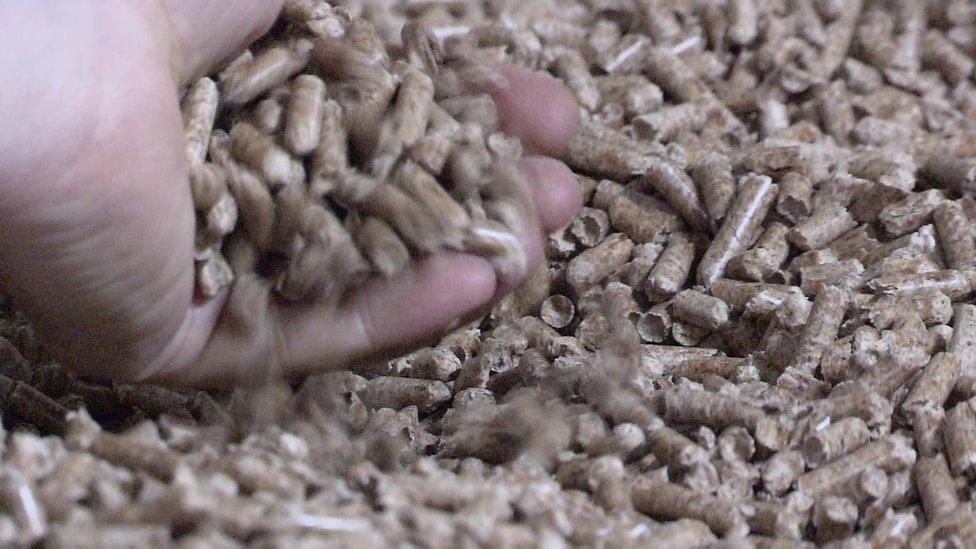
Some of the boilers burn compressed wood pellets
It has been paid back £340,000 since 2015.
Another said there had been a "huge hullaballo", adding that there would have been less fuss if it had been selling drugs.
The total money paid out to the named RHI companies over the specified period was £27,621,865.02
The Renewable Heat Association, which represents some beneficiaries of the scheme, said the release of the list "is, in no way, evidence of wrongdoing" by the named firms.
It added that it hoped the publication would "not lead to an assumption by the public or the media that the participants are acting improperly in any way".
"Participants entered a scheme legitimately, which was designed and promoted by the government in Northern Ireland," it said in a statement.
The department won a court case earlier this month after some boiler owners challenged the publication plan.
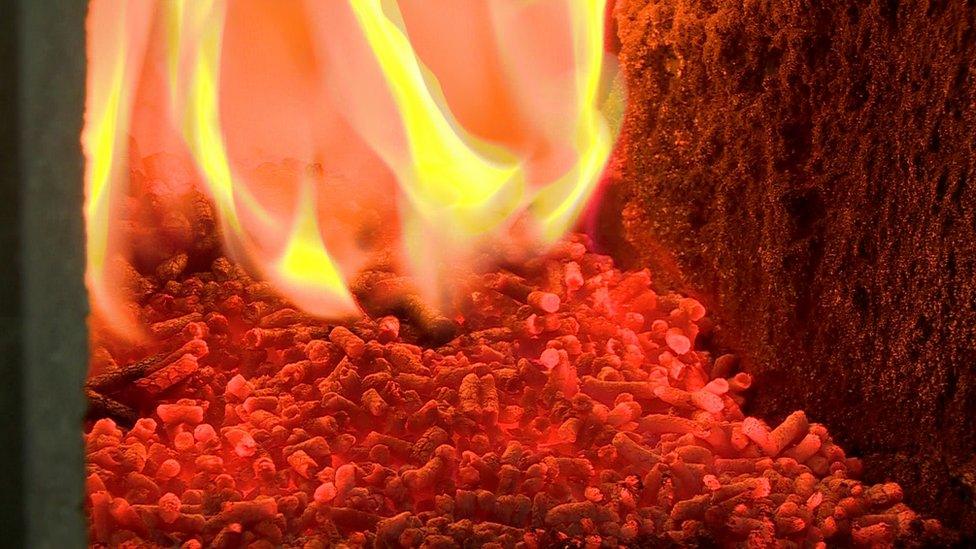
There's been controversy over the projected cost of the scheme
A judge said that releasing the companies' names would help prevent abuse of the scheme.
But he ruled that details of those who had applied for a subsidy under their own name, rather than in the name of a company, should not be published until data protection checks were completed.
Details of those individuals will be assessed on a case-by-case basis and may be released later.
Northern Ireland Executive documents prepared for an inspection tender show there are about 2,000 boilers on 1,200 sites.
Single boilers make up 800 of the installations and a further 200 are twin boilers, while the rest have multiple boilers on site.
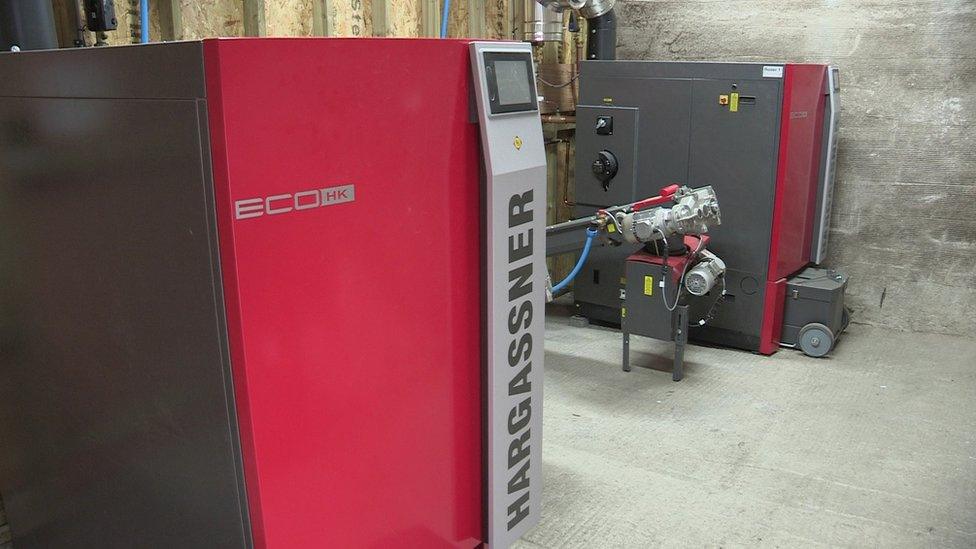
Some sites have more than one boiler
Former first minister Arlene Foster set up the RHI scheme in 2012 when she was enterprise minister.
It was an attempt by the executive to increase the creation of heat from renewable sources.
But flaws in setting the scheme's subsidy rate left it open to abuse as claimants could earn more cash the more fuel they burned.
The lack of cost controls led to an overspend that could cost taxpayers £490m over the next 20 years.
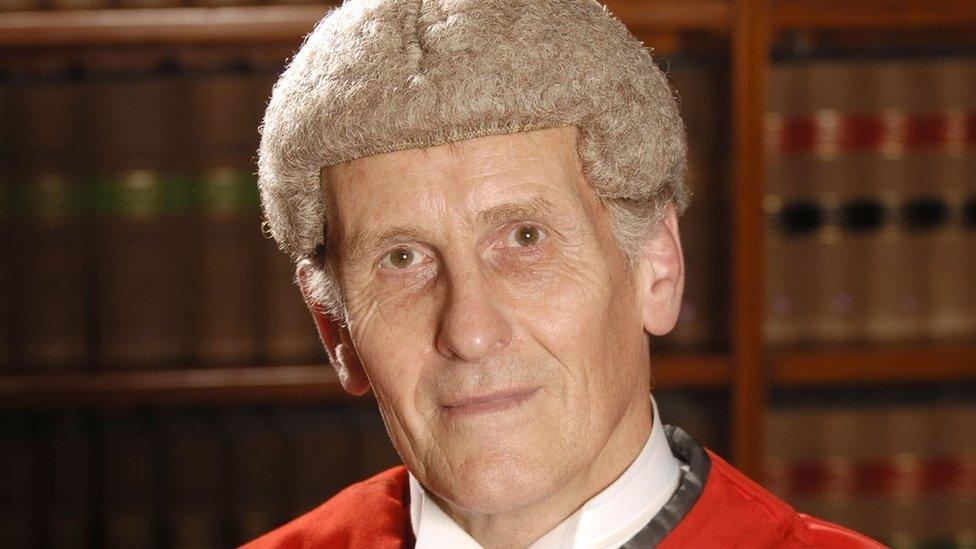
Sir Patrick Coghlin will hear the RHI inquiry
This month's snap Northern Ireland Assembly election was called after a coalition led by Mrs Foster's Democratic Unionist Party and Sinn Féin collapsed after the then deputy first minister Martin McGuinness resigned over her refusal to step aside during an inquiry into the debacle.
A public inquiry into the botched scheme is to be led by retired judge Sir Patrick Coghlin, and a preliminary session will be held next month.
It will look at the design and operation of the scheme and allegations of political pressure to delay its closure as it ran into big problems.
Cost controls have been agreed to reduce subsidy rates in the coming financial year, but they face a legal challenge from boiler owners.
- Published23 October 2019

- Published1 March 2017
